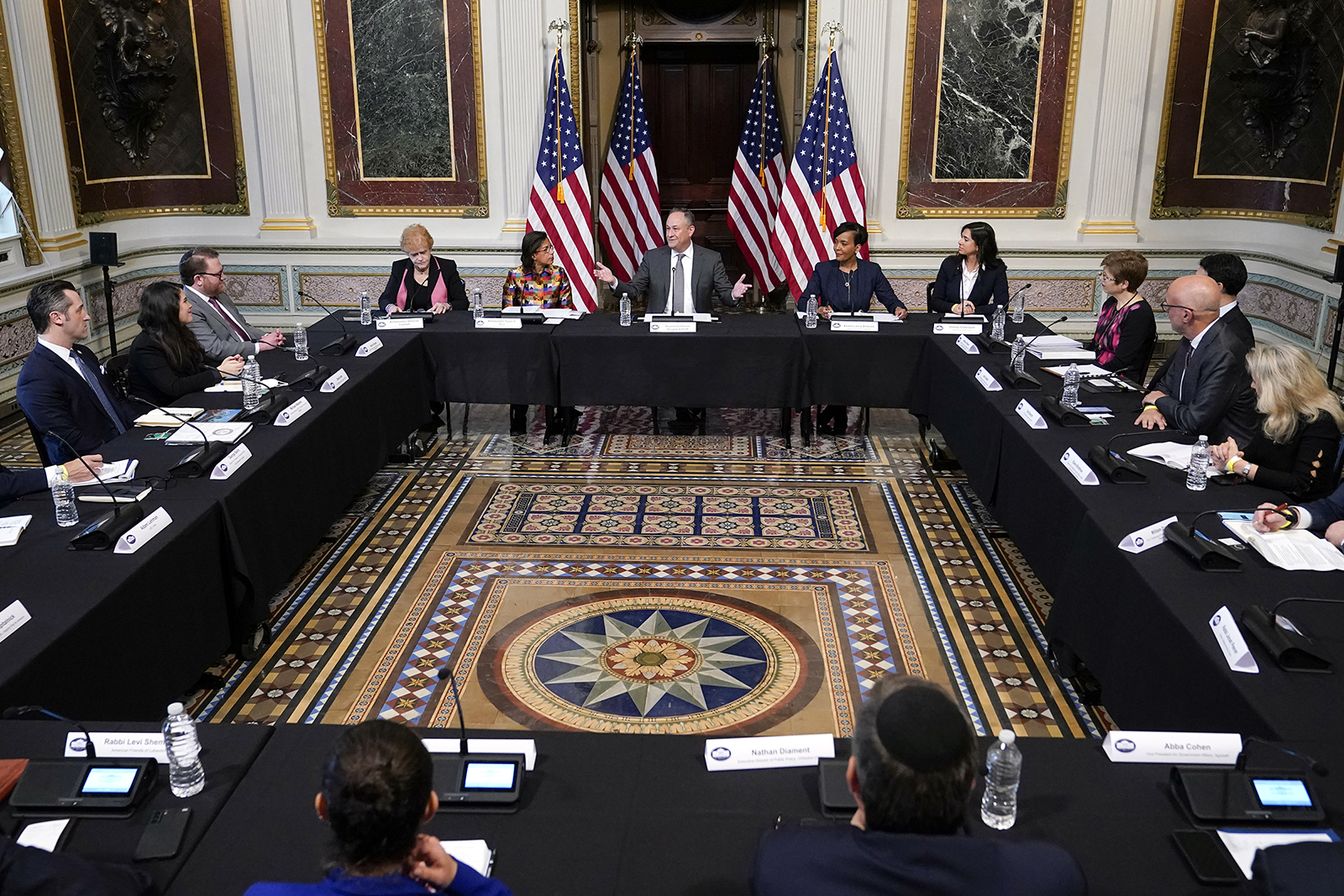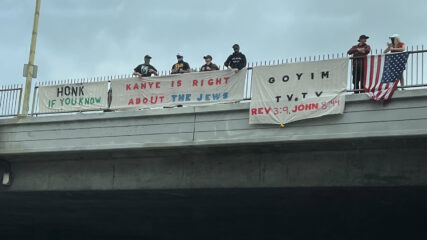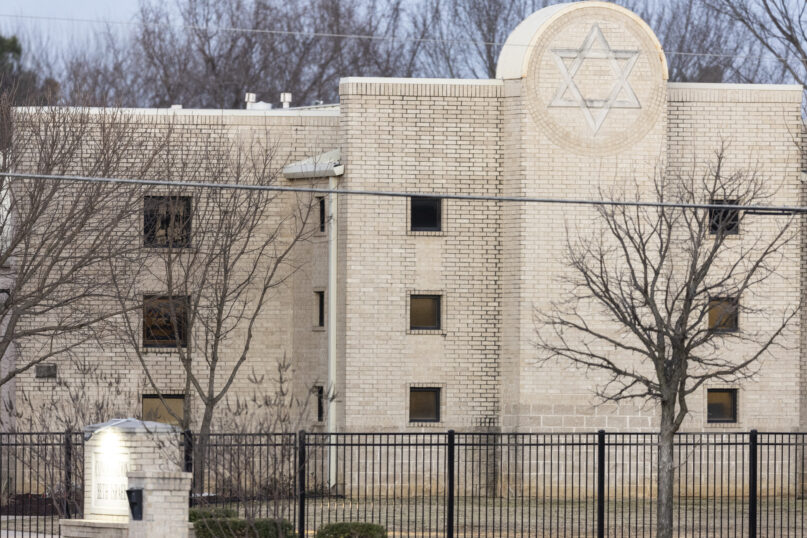(RNS) — Over the past few years there have been more than a dozen acts of violent antisemitism in the United States: shootings in Pittsburgh and Southern California, hostage-taking in Texas, knife attacks on men in Jewish attire in the New York/New Jersey area, physical assaults on diners at a Jewish restaurant in Los Angeles, attempted arson at a northern New Jersey synagogue.
And, most recently, two more shooting incidents in a Jewish section of Los Angeles.
Those responsible include right-wing nationalists, white supremacists, Palestinians and deranged individuals.
But beyond these documented incidents, an accurate tally of antisemitism becomes more complicated, as does the notion that it is part of a “wave” of antisemitism.
Without question, there has been an uptick in reports of incidents characterized as antisemitic.
However, drilling down into the numbers raises questions. Thrown into the catchall mix of alleged antisemitic incidents are self-reported anecdotes. These range from harsh words in person and online to peaceful anti-Israel demonstrations and votes in support of the Boycott, Divestment and Sanctions movement aimed at the Jewish State.
Others report the distribution of antisemitic flyers, swastika graffiti and “feelings” of discomfort on the part of Jews and Israel supporters.
Lumping together these disparate incidents threatens to become an echo chamber of self-reinforcing paranoia.
For the past dozen years, I’ve covered antisemitism for Jewish publications, as well as secular outlets.
At the risk of standing on the tracks in front of an oncoming locomotive — on the day before what neo-Nazi groups have dubbed a “National Day of Hate” — I have some fundamental concerns about the current debate.
Different aggregate tallies of recent antisemitic incidents have been reported by different organizations and, I would argue, for different, sometimes cynical and self-serving reasons.
These big, amorphous numbers, all under the heading of “antisemitism,” are sending waves of widespread panic through the American Jewish community. But these totals rely on a number of things, chief among them the conflating of anti-Zionism with antisemitism.

Doug Emhoff, center, the husband of Vice President Kamala Harris, speaks during a roundtable discussion with Jewish leaders about the rise in antisemitism and efforts to fight hate in the United States in the Indian Treaty Room in the Eisenhower Executive Office Building on the White House Campus in Washington, Wednesday, Dec. 7, 2022. (AP Photo/Patrick Semansky)
Serious, violent antisemitism — apart from nasty words or nonviolent, anti-Zionist critiques of Israel — exists. It happens, but there is no reliable evidence to support the notion that it is of epidemic proportions.
And if the number of nonviolent, explicitly anti-Israel and anti-Zionist incidents is subtracted, the total gets smaller. Subtract self-reported anecdotes involving harsh words, “feelings” and social postings, and the total gets smaller still.
It is also possible that antisemitic postings on social media are not a new phenomenon but merely a reflection of antisemitism that has always been an element of the American body politic. They have appeared more frequently lately because of the general coarsening of political discourse and the emergence of social media, which allows anonymous postings. The same may be true of the antisemitic chants heard nearly six years ago — “Jews will not replace us!” — in Charlottesville, Virginia.
So, why are these two things, antisemitism and anti-Zionism, being conflated?
For one, there are, indeed, cases where the two overlap.
Complicating matters is a virtual civil war within the American Jewish community along familiar political faultlines. Mainline leaders are increasingly willing to speak out against the Netanyahu government and argue against categorically conflating anti-Zionism with antisemitism.
Some pro-Israel activists and organizations have a vested interest in including anti-Zionist acts with antisemitism totals, especially at a time when they see a need to deflect growing criticism of Israel’s new right-wing government from mainstream American Jews.
There is also an ideological agenda promoted by those same pro-Israel individuals and organizations who consider the progressive wing of the Democratic Party their primary enemy, rather than right-wing shooters and arsonists.
Free weekly community newspapers, supported by local Jewish federations, are full of columns by conservative pundits, like Jonathan S. Tobin, editor-in-chief of the Jewish News Syndicate, who toe the line that the real threat to the American Jewish community is antisemitism from the left.
Consider this one under the headline from 2021, “Liberals can’t be silent as the left incites anti-Semitism.”
“It’s time to connect the dots between a surge of Jew-hatred and progressives demonizing Israel. Equally important, Jewish liberals must stop treating ‘The Squad’ as allies,” Tobin wrote.
Anti-Defamation League CEO Jonathan Greenblatt also belongs to the “all anti-Zionism is antisemitism” camp. According to the Jewish Telegraphic Agency, in a May 2022 speech, Greenblatt charged that “vicious rhetoric” by left-wing anti-Zionists had led to antisemitic attacks. “Anti-Zionism,” he said, is “an ideology rooted in rage.”
Another toxic byproduct of the campaign to conflate anti-Zionism with antisemitism has been to stifle, if not poison, any rational debate on the subject for anyone who dares question this conflation, particularly within the Jewish community.

Antisemitic “Goyim Defense League” members hang banners over a highway recently in Los Angeles. Photo via Twitter/@StopAntisemites
Speaking sympathetically of Palestinian victims of the West Bank and Gaza, either as collateral damage in firefights or in retaliatory bombings, in synagogues and temples, much less in public, can lead to charges of antisemitism or Jewish self-hatred.
On Feb. 4, Rabbi Sharon Brous delivered a sermon on this point at her Los Angeles worship community, called IKAR.
“We cannot bring ourselves to shed a single tear for a Palestinian baby caught under the rubble of an apartment building in Gaza,” she said. “This is not an accident. And this is not an anomaly. This moment of extremism has been a long time in the making, and our silence has been complicity. And any time a person tries to stand up and speak out they were met too often with vicious vilification, enough to silence nearly everyone.”
If all criticism of Israeli government policy qualified as antisemitism, then every Jewish Israeli citizen who disagreed with the Israeli government would be antisemitic, which makes no sense.
Categorically conflating anti-Zionism and antisemitism violates logic, stifles rational discourse and contributes to social harm.
Will any of the conflaters be courageous enough to recognize this truth?
(Mark I. Pinsky is a veteran religion reporter and author. The views expressed in this commentary do not necessarily reflect those of Religion News Service.)





